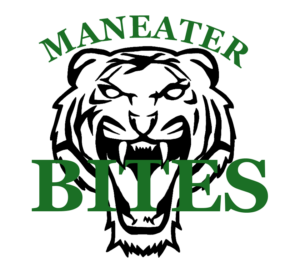November 14, 2021
Photo Courtesy of Lukas Veinbergs
The stands erupted into applause when number five rocketed a fly ball out into right field on an outside pitch. He turned on the jets rounding first when the ball was thrown to the second baseman. Number five looked to his coach, who jumped frantically in the air while pointing at third base. Taking the cue, he sprinted his fastest time yet, diving into third before the infielders glove could be swiped down by the dirt.
“Safe,” yelled the umpire, waving his arms out parallel to his sides.
Number five stood up after his coach gave him a congratulatory slap on the back. This is the moment he had been waiting for: the perfect timing, the perfect pitch, the perfect opportunity.
As he looked towards the stands with hopeful eyes, he saw the recruiting scout sit down with a plate of nachos and Diet Coke, oblivious to the commotion that happened not even a minute ago. With a defeated sigh, number five realized he paid hundreds of dollars in traveling expenses and entry fees for a showcase tournament, for an opportunity to be recruited — all for the scout to trade off his best triple of the day for a bite to eat.
To the recruiter, he was just a number in an overflowing pool of qualified candidates.
Missouri baseball alum Lukas Veinbergs knows the challenge that comes with getting recruitment offers firsthand. Being raised in a small town with a population of 5,000 people in Michigan, he only noticed the financial inequities and subjective recruitment process of the college baseball industry after graduating from college. He now works for startup company Winmill to help baseball players trying to get recruited.
Winmill created the Baseball Aptitude Test, a sort of standardized test, to help bridge the recruiting inequality gap in baseball. The company is hoping to provide a more affordable and accurate way for baseball players to get recruited at the collegiate level. Veinbergs said the process is much more accessible than the hundred-dollar showcases he participated in each weekend to just get noticed at the start of his college ball days.
“We’re looking at it as a standardized test like the ACT or SAT,” Veinbergs said. “It costs about $150 to come in and take the full 80 pitch, roughly 30-minute evaluation. Then you get access to the database and your profile that’ll give you your percentile, your state rank [and] your national rank. Your data is pushed to college coaches.”
Winmill is set to launch the B.A.T. in November. Players who wish to participate in the evaluation will sign up online at Winmill’s website, register for a time and show up with their hitting gear to take the test. Winmill’s CEO, Mārtiņš Marenis, said the company plans on making stops across the Midwest in the coming months.
They will start in Chicago and then make their way through Missouri, Indiana and Michigan, ensuring they cover all major places for baseball across the Midwest. After that, they will travel nationally. For now, they will be in Chicago until the end of the year.
Marenis said that Winmill was founded on the principle of building tools that offer athletes the opportunity to increase their training possibilities and performance. He said the B.A.T. is an effective way for athletes to measure their talent in a proctored setting.
“We are looking [at] about 12 rounds of five to 10 pitches,” Veinbergs said. “And those range from fastballs, curveballs, changeups. All the pretty average metrics. With our machine, we can recreate any pitch ever, which is pretty cool, but we are trying to keep it pretty average so everyone faces the same thing. And [after] 24 to 48 hours they’ll receive a PDF version of their results.”
Winmill is not tailoring the B.A.T. with one specific racial or financial demographic in mind. The goal is to help anybody and everybody who cannot travel to a showcase and has aspirations of playing college baseball.
Veinbergs said the college sports industry seems to favor those who have a larger stature and attractive-looking swing. He also said showcases can be costly. On average they can cost hundreds of dollars. But with the B.A.T., that all changes.
“We don’t necessarily want to eliminate the video and subjectivity [of in-person recruitment with the B.A.T.], but we want to minimize it so the numbers catch your eyes more so than the player’s stature,” Veinbergs said.
Veinbergs said despite the inclusiveness of the B.A.T., college coaches will continue to scout at showcase tournaments because the machine cannot measure everything, like attitude and camaraderie. However, Veinbergs said Winmill is trying to change the way people look at this process. They are offering a more objective alternative to showcase tournaments and providing another opportunity for players to be noticed.
“In the past, I might know if [a scout is] at a showcase, but I’d have to hope they didn’t go to the concession stand when I hit or [hope] he’s not talking to his buddy when I’m pitching,” Veinbergs said. “With the objective numbers, [coaches] can have confidence in the numbers and be confident in the decisions they are making. ”
While the days of nacho-eating scouts still loom, Veinbergs said there is greater hope and possibility that players will be able to provide a more accurate portrayal of their abilities and skill sets to recruiters thanks to Winmill’s B.A.T.
“It’s the most reliable way to get good, clear data to college coaches,” Veinbergs said. “Most schools are not going to recruit straight off of this, but it’s a great way to get your name in front of them and to start a conversation if nothing else.”
Edited by Elise Mulligan | emulligan@themaneater.com
Comments
The Maneater has the right to remove comments that do not comply with policies surrounding hate speech.


Well written!